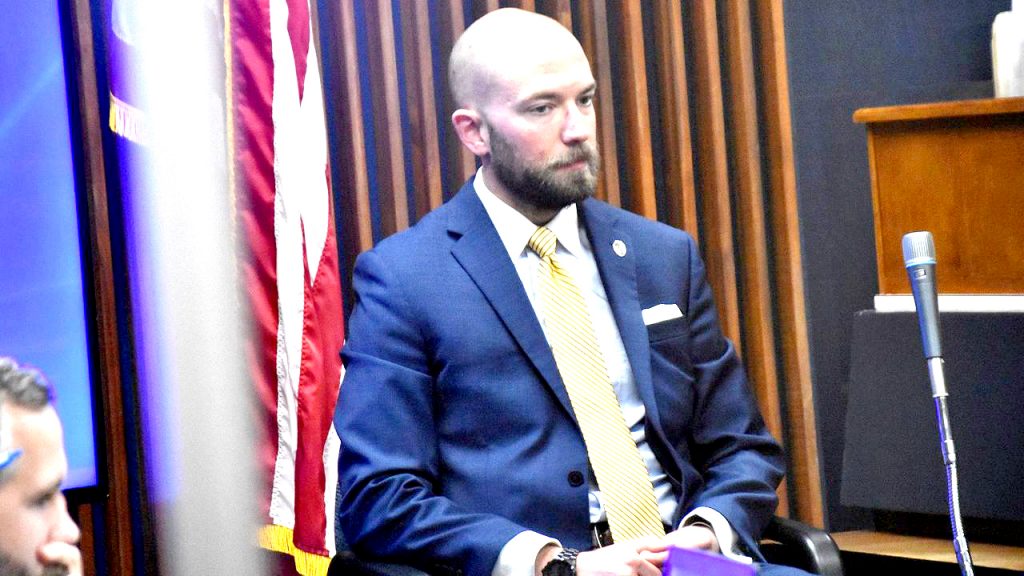The city of Huntsville won’t reveal how much public money it is spending on outside lawyers, arguing that information is confidential under attorney-client privilege.
AL.com requested that the city release records of expenditures related to the case of William Ben Darby, the Huntsville police officer convicted of murder last summer for shooting and killing Jeff Parker.

The city declined to release records showing how much taxpayer money it spent on the criminal case as well as an ongoing federal lawsuit. Specifically, AL.com asked for records of payments to outside lawyers, experts and any other expenses related to the criminal trial and the lawsuit that accuses the city and the former officer of excessive force.
“The specific legal/financial communications sought would violate the attorney-client privilege and related ethical restrictions placed upon the legal profession,” said Eddie Blair, an assistant city attorney, in an email response to AL.com.
He said the city was “unable to produce the requested records.”
“I don’t think this is a valid reading of privilege or confidentiality,” said J. Evans Bailey, an attorney for the Alabama Press Association, a professional group for news outlets that also advocates for public access to government. “The dollar amount is not privileged or confidential.”
Bailey said the city could redact any privileged materials from the financial records and still honor the public’s right to know how the government is spending money on behalf of the public.
The city lawyer did not return follow up calls from AL.com about whether the city would provide redacted records.
In denying AL.com’s request, Blair said releasing the records also “carries the potential for disrupting” the federal lawsuit and Darby’s appeal of his murder conviction.
But Bailey told AL.com that, under state law, that’s not a valid reason to withhold the records from the public.
“Disrupting the course of ongoing civil litigation is not an exception under the Open Records Act,” he said.
Ever since Darby shot and killed Parker in 2018, the city fought efforts to make public information about the case. City officials refused to release his personnel file and records related to the shooting.
All the while, the city council devoted $125,000 of public money to pay for Darby’s criminal defense lawyers at his murder trial. And Mayor Tommy Battle and former Police Chief Mark McMurray stood by the actions of Darby, saying he acted within policy when shooting Parker.
But the city has not disclosed what it paid to outside counsel for work related to the criminal case, nor what it has spent defending the lawsuit.
After a Madison County jury found Darby guilty of murder last summer, the city — in motions filed by its outside lawyers — objected to a judge’s order releasing the bodycam footage to AL.com.
Those actions earned Huntsville the 2022 Golden Padlock from Investigative Reporters and Editors, a group that each year names the “most secretive government agencies in the U.S.”
The remarkable level of secrecy in Huntsville beat out efforts to prevent the release of public records by much larger agencies, such as the state of Arizona and the U.S. Food and Drug Administration.
But this latest denial charts new ground, withholding the most seemingly basic information about how the city spends public money. In the past the city released financial records related to Darby’s case, even when it withheld police records like bodycams or incident reports.
AL.com last year obtained records from the city showing that for more than two months after his murder conviction, Darby remained on the city payroll. The state stripped Darby of his law enforcement certification, but the city did not fire him. He resigned about a month before a judge sentenced him to 25 years in prison.











